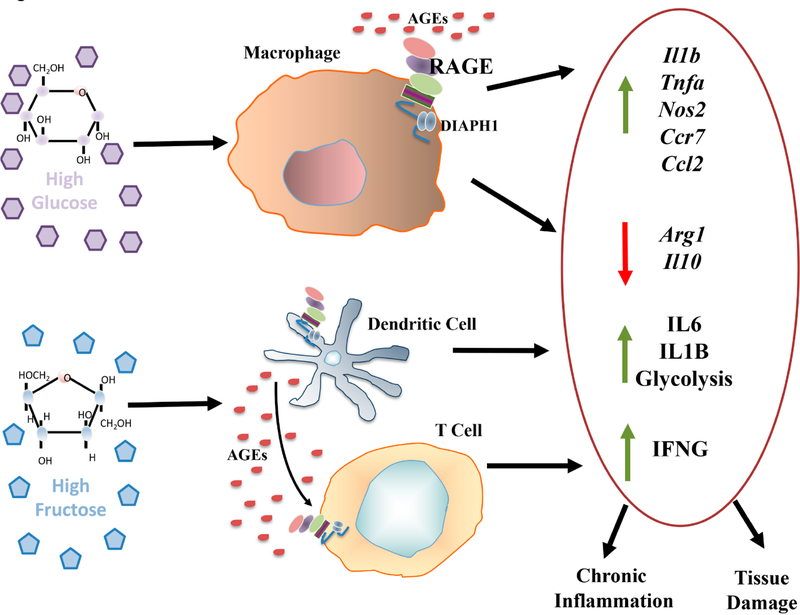Figure 1. Effect of glucose and fructose on inflammation in murine bone marrow derived macrophages and human dendritic cells and T cells.
The sugars glucose and fructose exert significant effects on immune cells. In murine bone marrow-derived macrophages (top), incubation with diabetes-relevant levels of d-glucose (25 mM) vs non-diabetes relevant levels of d-glucose (5 mM) resulted in upregulation of the indicated pro-inflammatory genes, in parallel with downregulation of resolution-provoking genes; these processes were traced to RAGE [26]. In other studies, human peripheral blood-derived DCs incubated with high levels of d-fructose but not d-glucose, increased production of IL1B and IL6 (bottom). Co-incubation of d-fructose-treated DCs with T cells increased T cell production of IFNG. These experiments traced the effects of d-fructose-derived inflammation to RAGE [27].

